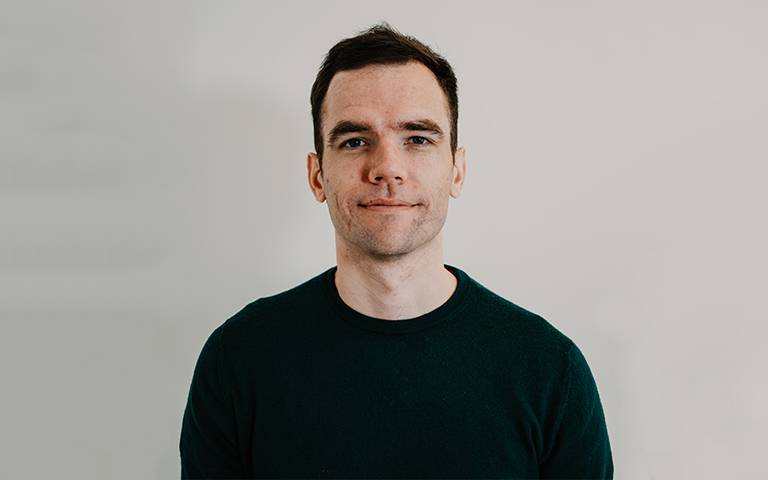Meet our graduates: Paul Clewett
27 September 2022
Paul Clewett graduated from his MSc in Global Migration in 2014. Since then, he's gone on to work with think tanks, social enterprises and most recently his startup, Emani.

He tells us about his experiences at UCL Geography and his work helping businesses, governments, and NGOs make good decisions.
Why did you choose UCL Geography?
I chose Geography because I wanted a course that actually tried to understand real people. I'd come from International Relations, which was fascinating, but fairly abstract. Geography was grounding.
What did you want to do when you applied?
In some ways, I expected to get a degree but really got an education. By that, I mean that I really got a buzz out of studying and thinking in new ways. The Department (including Ben Page, Tariq Jazeel, Claire Dwyer and others) stretched me in so many different directions.
What have you been doing since graduating?
After graduation, I spent a couple of years at a think tank in Brussels. Then moved to a social enterprise called Seefar, which was a real startup at the time and exposed me to so many interesting projects in the international development sector. I finished up heading their Afghanistan programme and then left to consult independently. That got a bit lonely, so I jumped into a tech incubator called Antler, which invested in my current startup, Emani.
Tell us more about Emani
Emani is fundamentally about helping businesses, governments, and NGOs make good decisions. While we're drowning in data in the hyperconnected West, there are still big gaps in information across our geographies in Africa and Asia. Yes, there has been a boom in global internet access but our reach is still really limited. And in the same places, doing research is considered expensive and difficult. The result is that lots of projects get planned without any real incorporation of local views.
Some of our work includes helping the UK government, via Chatham House, understand the cost of living crisis in Africa. Our recent work in Pakistan is about going beyond the immediate humanitarian questions (who needs help, where) and helping the international community understand what went wrong.
What are you hoping to achieve and why is it important?
Our hope, eventually, is that Emani serves as a platform for affordable, two-way dialogue between communities and outsiders who bring projects, investment, or other forms of intervention. It's especially pertinent in the context of climate change, as we can't expect to have a 'just transition' without getting much better at consistently speaking to the people affected by, for example, massive solar power projects in rural India or the switching off of fossil fuel-based plants in parts of Africa.
How has what you learned at UCL impacted the project and your work since graduation?
UCL was important in giving me the confidence to ask big questions and pursue what is turning out to be quite a random career path. UCL feels like such a blur (it was just a couple of semesters after all) but my best memory was genuinely the debates I had with my classmates. The Global Migration course had some seasoned pros in it who brought a wealth of experience. I'm still in touch with a couple of them whose careers are far more impressive than mine!
And finally, what advice would you give to new students
For new students, I'd say throw yourself into what's interesting, even if it's hard. It'll be fun to learn and will give you a jump on others when you start your career and have to learn it anyway. The other advice is to talk to as many people as you can about what you're doing and what you're interested in. I'm jealous of people at university because of the density of talent and interesting people. It's harder once you leave!
Interested in following in Paul’s footsteps? Check out the MSc in Global Migration course in our Postgraduate (Taught) pages.
 Close
Close

